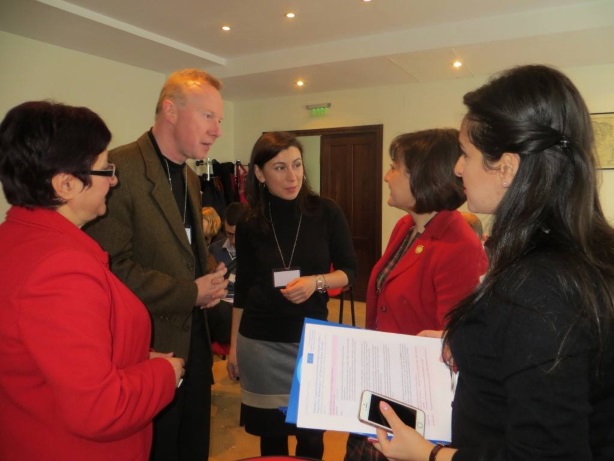Below please read the description of activities which were planned and completed during the three years of the project.
Project Activities/Developments
The LNSS project commenced with the Project Kick off- PMC meeting held in Brasov in Spring 2016 where criteria and procedures for communications between partners, management and decision making structures and the functions of the Library Action Groups, Library Access Liaison Librarian and local project coordinators were agreed. All partners signed the Consortium Agreement which ruled relations, methods of cooperation, disagreements, planning meeting agenda and the identification and agreement of control procedures, including problem solving procedures.
Preparation in the project involved the implementation of training and library needs detection, Library Strategic Review and needs analysis regarding Electronic Library Services.


The Development phase commenced with ESP Training (Libraries and library terminology) followed by the preparation of the ECTS Module Training Program + Training materials using EU Tuning Method. This was followed by LNSS Curriculum Training in Limerick, Piloting & Evaluation of Piloting of LNSS Curriculum in PC’s, Consortium Strategic Plan, Digital and Electronic Library Strategy.
Quality was ensured through the Library Action Group Strategic Review, evaluation of LNSS Curriculum piloting and QA reports, QA Training. Important activities for Dissemination/Sustainability in the project included the LNSS National Awareness Days, Dissemination Workshops, LNSS modules testing & integration, the LNSS Online Platform, Final Project Conference.
The plan was to develop training program supported by ECTS modules (both hard copy in script form and online on project website platform) and embed in curricula in PC universities, public administration institutes and disseminate through public and National libraries involving them in the process to ensure maximum transfer effect to society at large.
Training Content and Pedagogical Approach
We determined in each case the required methodological approaches needed with respect on how to teach, and meet the needs of librarians and library staff. Each partner designed bespoke training programs to best meet their target market (i.e. University library staff, academic staff, students & student teachers, policy makers, public librarians) enabling flexible and responsive solutions that stemmed from an agreed set of principles and enabled all areas of libraries to be addressed. The pedagogical approach stressed communicative, learner-centered and a soft skills teaching approach. To support intenationalization and sustainabilioty English as a Medium of Instruction training was developed and carried by the TPG enabling all modules to be taught in English.

